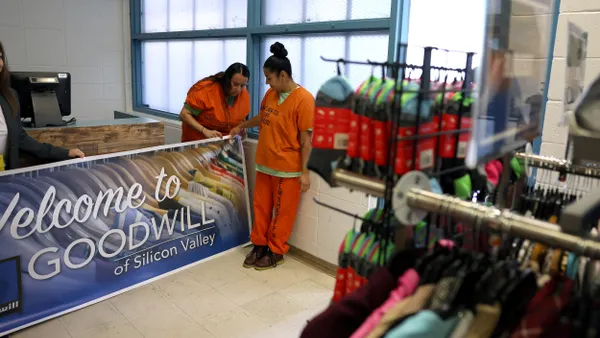Dive Brief:
- For leaders who transitioned into new roles in 2020, there was a "big drop" in leadership skills training, formal assessments, and 360 feedback compared with early 2019 and before, according to the findings of a survey by Development Dimensions International. The company pored through responses from 15,787 leaders and 2,102 HR execs to compile the report.
- The lack of support may be contributing to a "lost generation" of leaders, DDI said. To reduce stress and set transitioning leaders up to succeed, companies need to provide a clear picture of what success looks like, provide formal assessments that help leaders understand where they struggle and do well, provide eventual 360-degree feedback and provide leadership training, the report suggested. While companies may have put these needs on hold during the pandemic, they need to respond soon to prevent employees from burning out or quitting, DDI said.
- The report also found that men are more likely to receive transition support than women. Specifically, men are 13% more likely to receive leadership skills training, 19% more likely to be formally assessed, and 22% more likely to be assigned a formal mentor — an oversight that can hold women back. "The number of promotions leaders receive is directly impacted by key developmental opportunities organizations offer their leaders," the report said.
Dive Insight:
Workers have demonstrated consistently that they value training at work. In a Milken Institute and Infosys report released in March, respondents described on-the-job training as more valuable than licenses and certifications, online courses and university degrees.
Learning and development saw its importance solidified during the pandemic, but DDI’s report shows transitional training for leaders took a back seat to other needs organizations identified as they positioned employees to operate remotely.
The lack of focus on managerial training and support has reverberated. An October report from 15Five found that managers regularly overestimated their success in their roles compared with feedback from their direct reports. More recently, a LinkedIn report demonstrated that managers are feeling the pressure from the pandemic and, potentially, underinvestment in their training: Burnout rose 78% over 2020, the report found.
The success of managers and other leaders is central to an organization’s health, studies have shown. The same LinkedIn study above found that managers have a big impact on employee experience, including professional development, work-life balance and belonging.
Further, the DDI report showed managers crave the support of transitional training, and that delaying that support can have a sizable, negative impact. In order to avoid disengagement, leaders should be up to speed within three months of their transition, the report said. It recommended organizations focus primarily on providing transitioned leaders with quality assessment, coaching and clear performance expectations.













